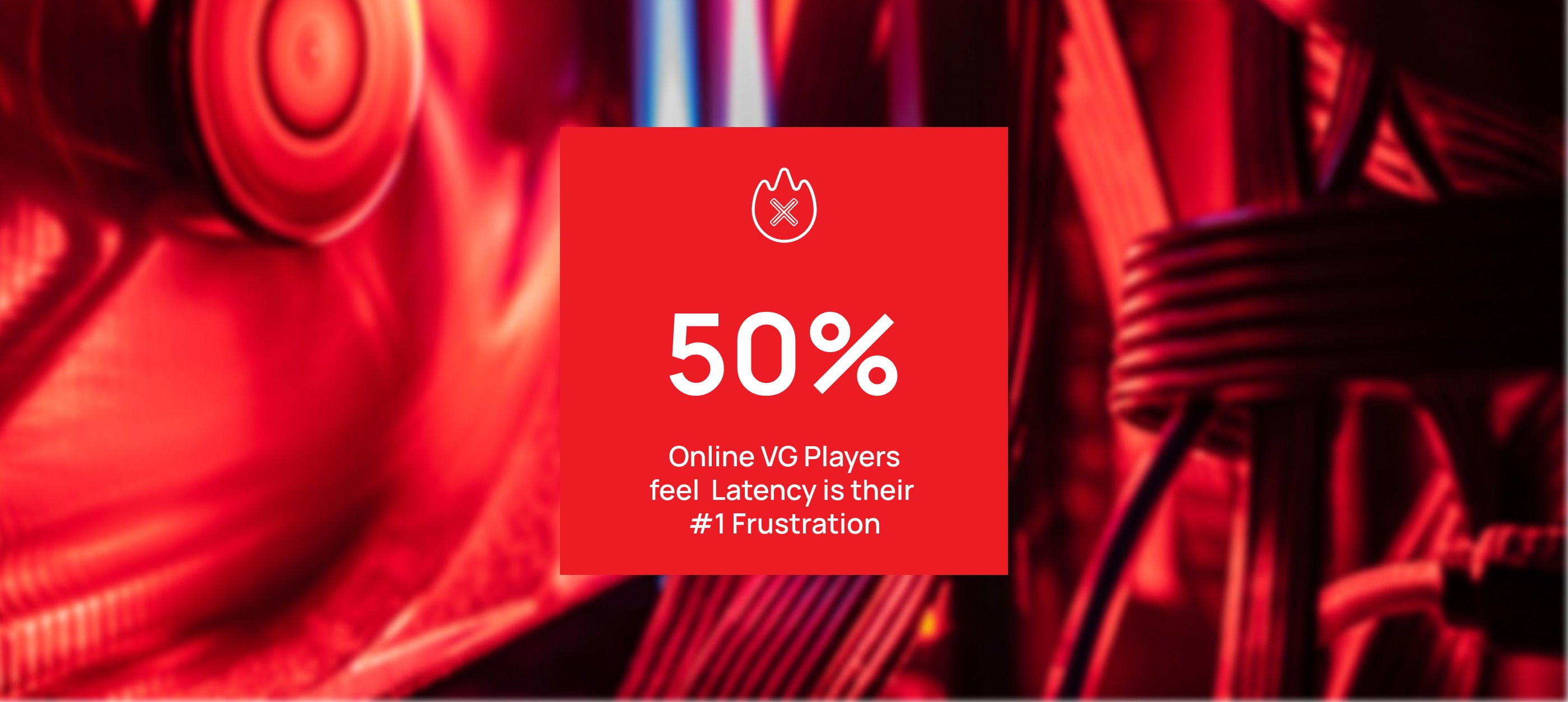
Navigating the Maze of Cloud Complexity, Scalability, Costs & Resources Scarcity
The Challenge: Running Game Servers on a Global, Multi-cloud Distributed Network
The cloud was supposed to make everything simpler.
An astounding 58% of respondents point to the complexity of managing multi-cloud environments as their top hurdle (1), stopping them from transitioning to a more flexible architecture despite 80% of game studios rating this important or critical (2). Even AAA studios like Riot Games are now admitting to leveraging edge computing to improve player experience.
Complexity doesn't stand alone; it brings siblings like integration troubles and scaling issues. In this convoluted setup, where each cloud provider brings a unique set of architectures, data storage systems, and operational procedures, you need specialized skills to navigate.
Yet, in the globalized online video game market can find fantastic success and revenues in non-traditional markets, such as Garena’s Free Fire success in Brazil or Krafton’s PUBG: Battleground in China.
Game studios and publishers recognize this opportunity, with 72% ranking it important or critical that their cloud partner be able to run low-latency workloads across the globe (5). Evidently, this is due to latency being a key priority for players, as 50% of the gamers we spoke to said lag and/or latency was their biggest frustration when playing online (8).

This is evident when 92% of game developers currently run workloads in six or more regions (6), and 63% recognize the direct impact on players' experience as a key benefit of edge cloud (7).
The Financial Drain: Upfront and Maintenance Costs
Cloud computing is no longer a luxury; it's a necessity. But it's a necessity that comes at a price.
Integrating multiple cloud solutions from different vendors doesn't just involve a steep learning curve; it results in high upfront costs. From setting up data pipelines to ensuring compliance and security protocols across multiple platforms, the financial burden can be taxing, with 42% of studios seeing it as a critical challenge for their organization (3).
Maintenance doesn't come cheap when you're working with diverse systems. These providers each have their unique pricing models, compliance regulations, and update cycles, adding to the overall operational cost. They often come with overlapping functions in a multi-cloud environment, creating a pricing spawl that’s a challenge for 62% of organizations (4).
The Double Whammy: Skills Scarcity
Skills scarcity exacerbates the already complicated and expensive nature of multi-cloud management. You can't simply throw money at this problem; you need the right talent to manage it. Cloud computing skills are in high demand but also in short supply. 40% of respondents acknowledge that they lack these internal skills (1), creating a severe capability gap within organizations to build processes to manage distributed compute.
The need for specialists who understand the nuances of different cloud platforms often creates a bidding war among organizations, driving up personnel costs even further. Thus, companies find themselves in a catch-22 situation: they need to invest in internal skills development, which again is a cost, to manage the complexity and ongoing expenses of their multi-cloud environment.
The Solution: Automated Solutions
Fortunately, game developers don’t have to navigate this complicated, costly maze alone.
Edgegap, in collaboration with Akamai, offers a straightforward and cost-effective solution for multi-cloud management.
Edgegap is an orchestrator that automates game servers orchestration including Akamai’s robust cloud.
By automating tasks that would typically require manual intervention, such as resource allocation and load balancing, Edgegap reduces the need for specialized skills.
Pay-as-You-Use: The Financial Relief
Edgegap employs a pay-as-you-use pricing model, a breath of fresh air for organizations tired of juggling high upfront and maintenance costs. This flexible pricing model allows businesses to scale their operations up or down based on actual needs, converting fixed costs into variable ones. The financial relief this model provides enables organizations, especially game studios, to refocus their resources and energies on their core activities.
A Real-World Application: Game Studios
For game studios, this combined offering from Edgegap and Akamai is a game changer, pun intended. The complexities of cloud management often distract these studios from their main objective—creating amazing games. By outsourcing the nitty-gritty of cloud management to experts like Edgegap and Akamai, game studios can finally focus on what they do best, leaving the cloud complexities to those who thrive on solving them.
The partnership between Edgegap and Akamai addresses the three primary challenges organizations face when dealing with multi-cloud environments: complexity, costs, and skills shortage. Their combined solutions pave the way for a smoother, less complicated, and more cost-effective cloud journey. And in a business landscape where agility and focus are key, who wouldn't want that?
Want to learn more? Edgegap’s account for testing is free – create an account today. You can also check out our documentation or contact us via email or Discord for more information.
Learn how Akamai's cloud computing services help companies delight gamers with a fast, immersive, personalized experience, empowering developers with an open, user-friendly cloud and achieving budget goals with low egress fees and transparent pricing.
—
This series is part one of a collaboration between Akamai and Edgegap and leverages “The Great Cloud Reset”, a new Forrester Consulting study, commissioned by Akamai, that surveyed 420 enterprise cloud strategy leaders across the globe. Gaming’s spotlight is available to read here. Edgegap’s “Online Connectivity Report” is also available here.
—
(1), (2), (3), (4), (5), (6), (7); The Great Cloud Reset – Gaming Industry, a commissioned study conducted by Forrester Consulting on behalf of Akamai
(8) Edgegap & Bryter Research, Online Connectivity Report (2022)
Written by
the Edgegap Team
Sources and/or content collaboration with
the Akamai Connected Coud team








